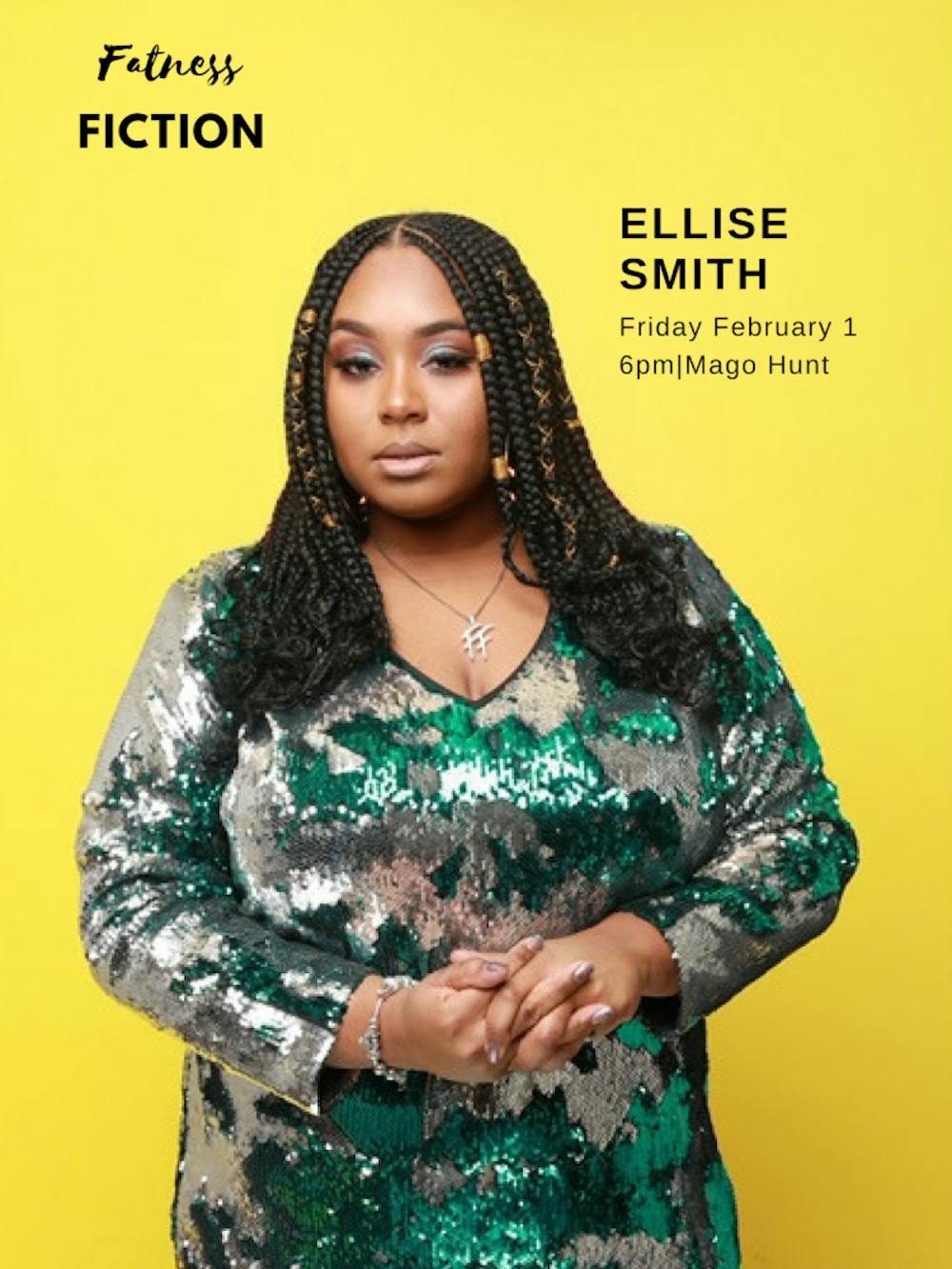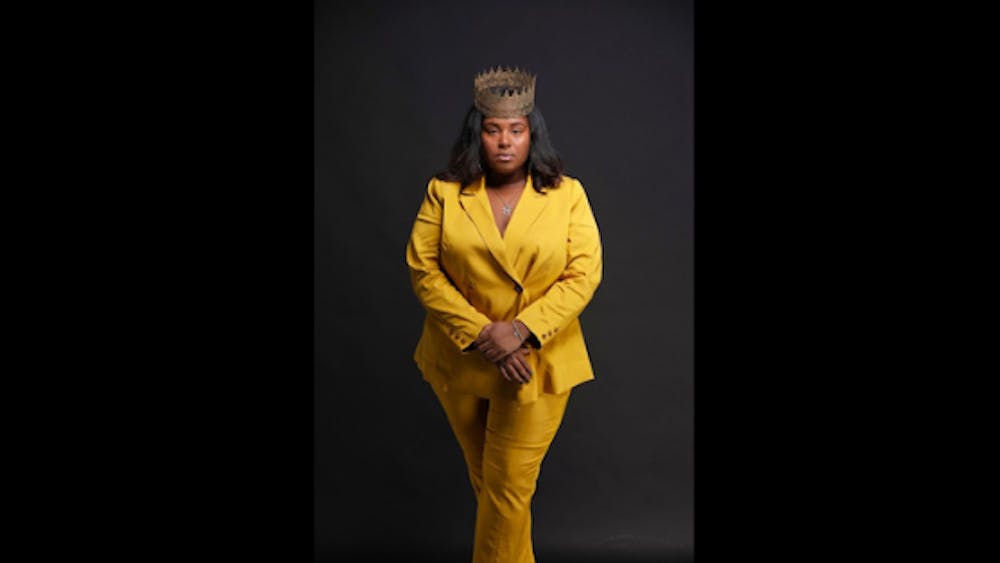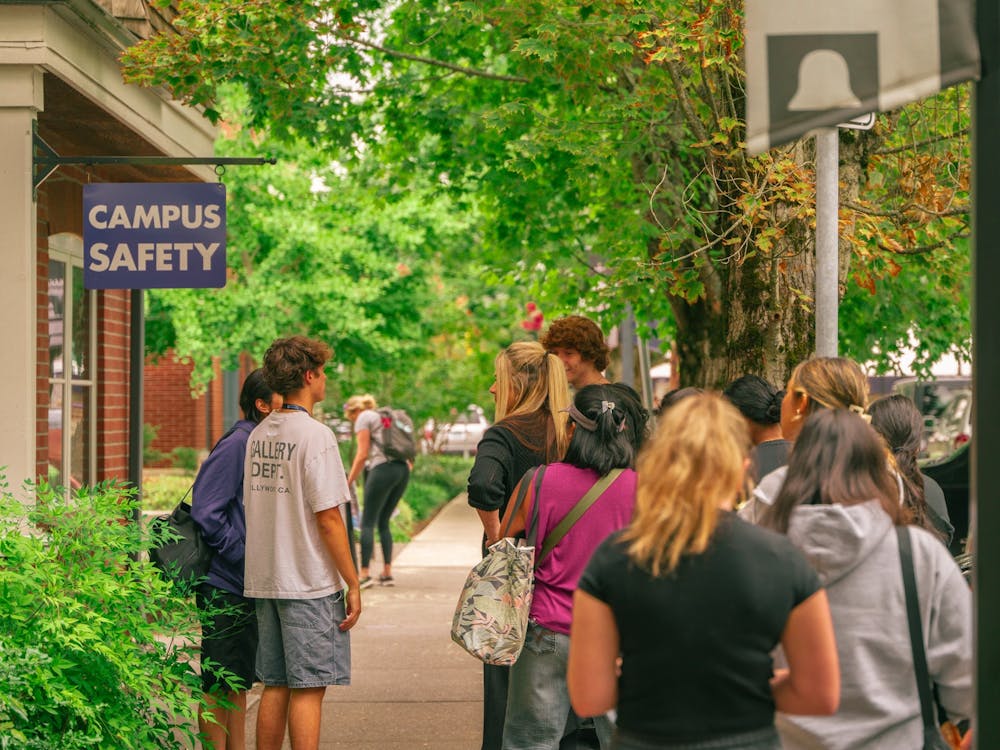
Ellise Smith tries to wear yellow on a daily basis so she can stand out. According to Smith, she wears the bright shade because the color has no gender associated with it.
Eradicating gender stereotypes is one of the main goals of Smith's work. Along with gender stereotypes, Smith also aims to eliminate body size stereotypes through her work with what she calls "fat activism." Since 2017, Smith has advocated for plus-size people through telling stories of “bigger bodies” and through her brand, Fatness Fiction.
As the final keynote speaker for Diversity Dialogues, Smith’s lecture, “Dispelling the Myths Associated Around Fat Persons,” aims to encourage UP students to eliminate stereotypes in their own lives and take more body image activism steps. The free-admission event will take place on Feb. 1 at 6:00 p.m. in Mago Hunt Theater.
Originally from Detroit, Michigan, Smith is a graduate of Indiana University with her masters in student affairs. She is currently working on obtaining a doctorate in urban education.
In a phone interview, The Beacon asked Smith for a preview of what students will hear on Friday. The transcript of the interview below has been condensed for length.
The Beacon: Let’s start off with the foundations of your company. What led you to start this activism?
Ellise Smith: The name of my brand is called Fatness Fiction, so the point of it is to reconnect with how we approach body image. Especially people who are outside of the societal construct of what it means to be this ideal body image. A majority of my life, well actually all of my life, I grew up on the heavier side of the spectrum...from adolescence to my adulthood. So when I came to Indiana University to work on my masters in 2016, it wasn’t until 2017 that I noticed it wasn’t a conversation being had...
All my life I’ve viewed school as my “Drug of Choice.” And by that, what I mean is, I always thought how I am going to prevail in school, and how I’m going to be this person. Because literally when I walk into a room, the first thing that they notice is that I am a female, that I identify as black and that I also am a fat body. So, as this fat body, I was noticing that society would continue to place these stigmas on me about ‘I’m worried about your health, or you’re lazy, or this.’
A lot of women and men, both who identity as women and men, and all gender outside the gender binary, have had the discussion about having the similar experience. And so I wanted to go into my research and then start my doctoral program to pretty much break these stereotypes. I know individuals who are pole dancers, who are marathon runners, amputatores, doctors — all of these different individuals who are doing these things in these bigger bodies and who don’t see beyond that and they don’t like that they can have the same exposure than smaller bodies.
Even celebrities who gain a little bit of weight, like for example, Beyoncé. Whether you like Beyoncé or not, when she had her weight gain after her children, people automatically pinned it as, oh she has to be pregnant. So, the only way people can think of people who identify as a woman who is a bigger body, is that they have to be pregnant or there has to be some kind of reason for them to be this way outside of just nurturing your body.
It really sparked my doctoral interest and research where I then started started taking photos. I’m also a photographer. I also kind of centered my work around bigger bodies because a lot of them have never been in front of a camera. So, the reason I do this work is to talk about the language we use.

The Beacon: I noticed multiple uses of the word ‘fat’ throughout your website and just in talking to you. The word seems to have a positive connotation on your website, as opposed to how many others think of it. Why do you choose to use this word? What do you think the effects are?
Smith: The reason why I chose to use the word fat is because it’s an important word among those who actually do fat activism. It’s an identifiable word, so you kind of know what you’re looking for...Fat is a descriptor for us, those who identify as fat. Like in the title of my work, fatness is because there is a spectrum; so somebody may feel fatness in their face and their stomach and their arms and it still can go outside of the European beauty standard.
So, the reason why we use it is because it’s a point of reclaiming. Some people are comfortable with the word, some people are not. I will say I am 100% comfortable with the word. But what I have to realize is I’m not doing this work just for myself. So for those who hear the word and turn away, you know I want them to realize it’s gonna take them years to ever get rid of the word. So, instead of running from it, why don’t we use it?
When I think of people describing themselves. It’s just another word, and we have to be the ones that when we hear it, we take the power away. And when I was younger, I thought it sounded so cliché and like it was impossible. But now I’m older and have more people say it. You know one of my friends, she had something on and I was like ‘yeah you colorful, you’re like a fat unicorn’ and she was like ‘I love it’ and ever since then, she runs with it. Because fat people or bigger bodies, you can’t wear bright colors, they tell us you can't do this, you can't do that...I will reclaim that word.
The Beacon: What do you want University of Portland students to take away from your talk?
Smith: That diversity has a plethora of different places that it takes up. It’s not just entangled within the identities that we see listed on an internship application or a job application. And I take social justice, body justice through the lens of bigger bodies specifically. And I specifically say ‘body’ because I do body image work. But nobody is free if we condemn a certain type of body, even if you’re skinny or on the slimmer side. You can’t say that you’re this activist if you're shaming bigger bodies and not understanding their stories.
As a bigger body, I have never been ashamed of the anti-smaller body...We all have faith here. We are trying to change the world and we have to realize those differences. So, I really want students at the University of Portland to know that everybody has a space and place to be there, and we have to be respectful of one another.
By listening to the stories that other people have to share. When you walk away from this presentation, I want you to feel as if you recognize the privileges you may or may not have, whether you’re big or small, and how you’re going to actually take those steps within micro-activism to create the model for the macro-activism.
Fiona O'Brien is a reporter for The Beacon. She can be reached at obrienf21@up.edu.








